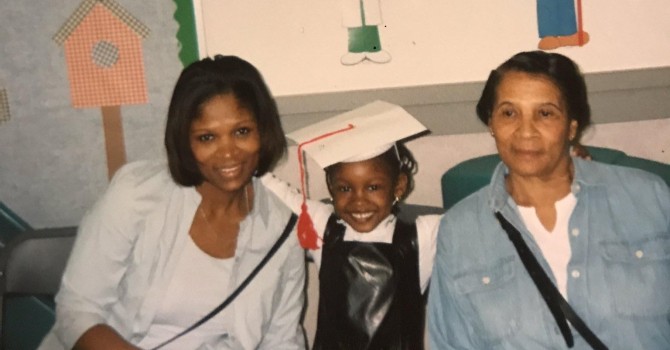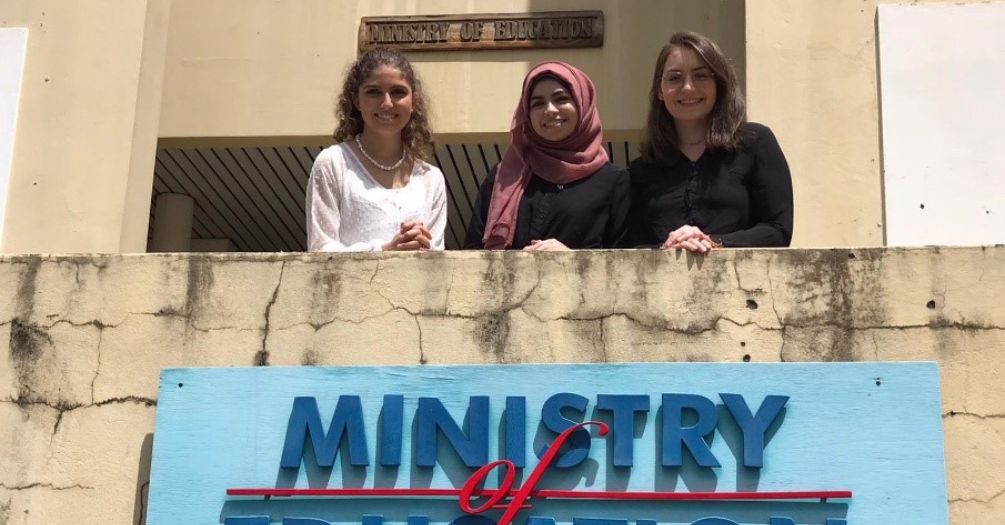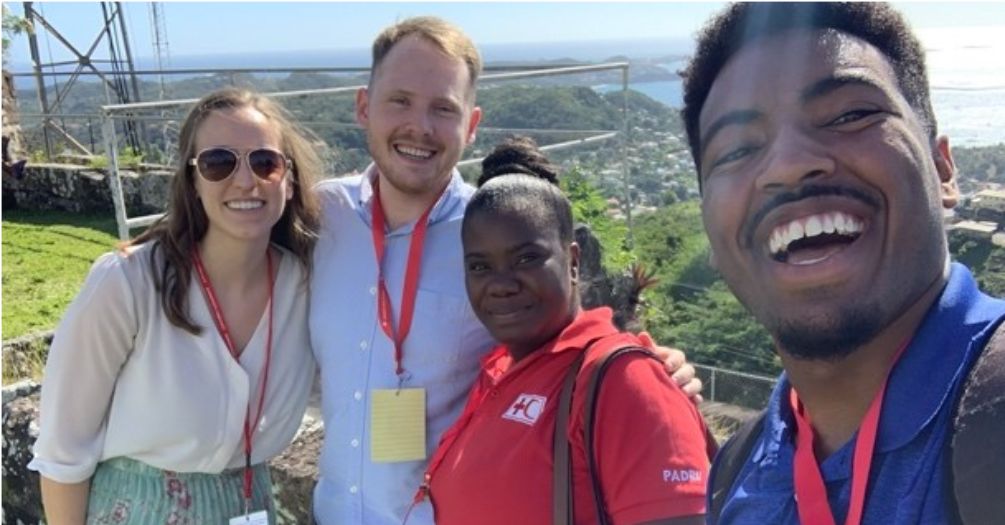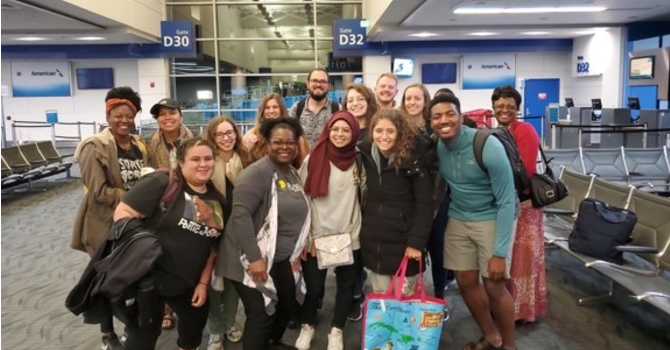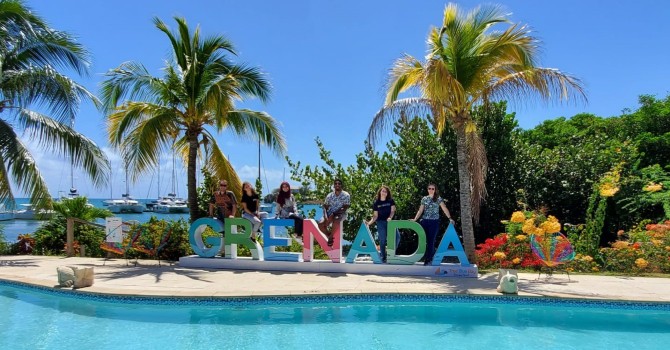PHAST in the Time of COVID: Reflections on the Mississippi Project
Elena Shuvaeva, Epidemiology Student
May 8, 2020, Aging, COVID-19, Health Equity, Mississippi, Policy, Poverty, Practice
Note: This blog post reflects project work from PUBHLTH 615, a course originally designed to culminate in a week-long field experience that was changed to virtual format due to the COVID-19 outbreak. While students did not travel to Mississippi for the traditional field experience this semester, they were still able to work on the project remotely.

Two images of Tunica County, Mississippi: the left shows Tunica neighborhood Sugar
Ditch Alley in 1976; the right shows the Casino Strip in Tunica Resorts in the 2010s.
I am writing this blog post in April 2020. Right now, there seems to be an unspoken expectation that before discussing any topic, one has to talk about COVID-19, the respiratory disease caused by a novel coronavirus that has infected ~2 million people worldwide and disrupted every possible aspect of life. As a member of PHAST, I signed up to take Public Health 615 to learn the skills necessary to enter, engage with, and exit communities where partners call for public health professionals’ expertise – and then to put those skills to use during our trip to the Mississippi Delta in May. As social distancing measures have been adopted by the U.S., the trip had to be canceled. I spent a lot of time thinking about the effects of this trip – and countless others with similar health-related goals – being canceled, and how population health outcomes will end up becoming worse even in situations having nothing to do with COVID-19.
The Mississippi Delta county I was assigned is Tunica County. Before this class, I had limited knowledge about Mississippi past the 1960s and had never even heard of Tunica. I find many people from the North and the East Coast completely dismiss Southern states like Mississippi, seeming to have no empathy for the actual residents who bear the brunt of harmful policies existing there. As a lifelong contrarian, I respect the South (and Southern food!) and was excited to be involved in a project aimed to improve the health of the older population.
Through the class and assignments, I was able to learn about the Mississippi Delta’s diversity, resilience, and evolving challenges – which very much contradicted the static stereotypical image of the region I had previously. I was surprised by how unique my county turned out to be. In 1985, it was the most impoverished county in the U.S. This was exemplified by the poor conditions in the Sugar Ditch Alley neighborhood in Tunica, where African-American residents lived without electricity and an open sewer in the ditch running through the town. When Reverend Jesse Jackson visited the county in 1985, he dubbed it “America’s Ethiopia”. In the 1990s, the casino industry came to Tunica County and brought with it employment and significant improvement of the conditions. I had never heard of Mississippi casinos and yet, they had once been one of the top legal gambling destinations in the U.S. However, the casinos have been declining in the past decade, with one closing after the other – and the jobs being lost as well. Most likely, this pandemic will make casinos even less popular and more will unfortunately close in Tunica County. With recreation and associated sectors being the top employers in the county, this worsens conditions for the older adults living there.
For our project, we will be interviewing older adults in the Mississippi Delta living in rural areas in order to better understand their needs. The results will then be communicated to decision makers and organizations to inform resource allocation/distribution and policy development. I hope I will be able to go to Mississippi next year and see this project through despite the current setbacks.

